INTERNACIONAL
Bishop’s village attacked, 20 slain after recent testimony to Congress on Christian persecution
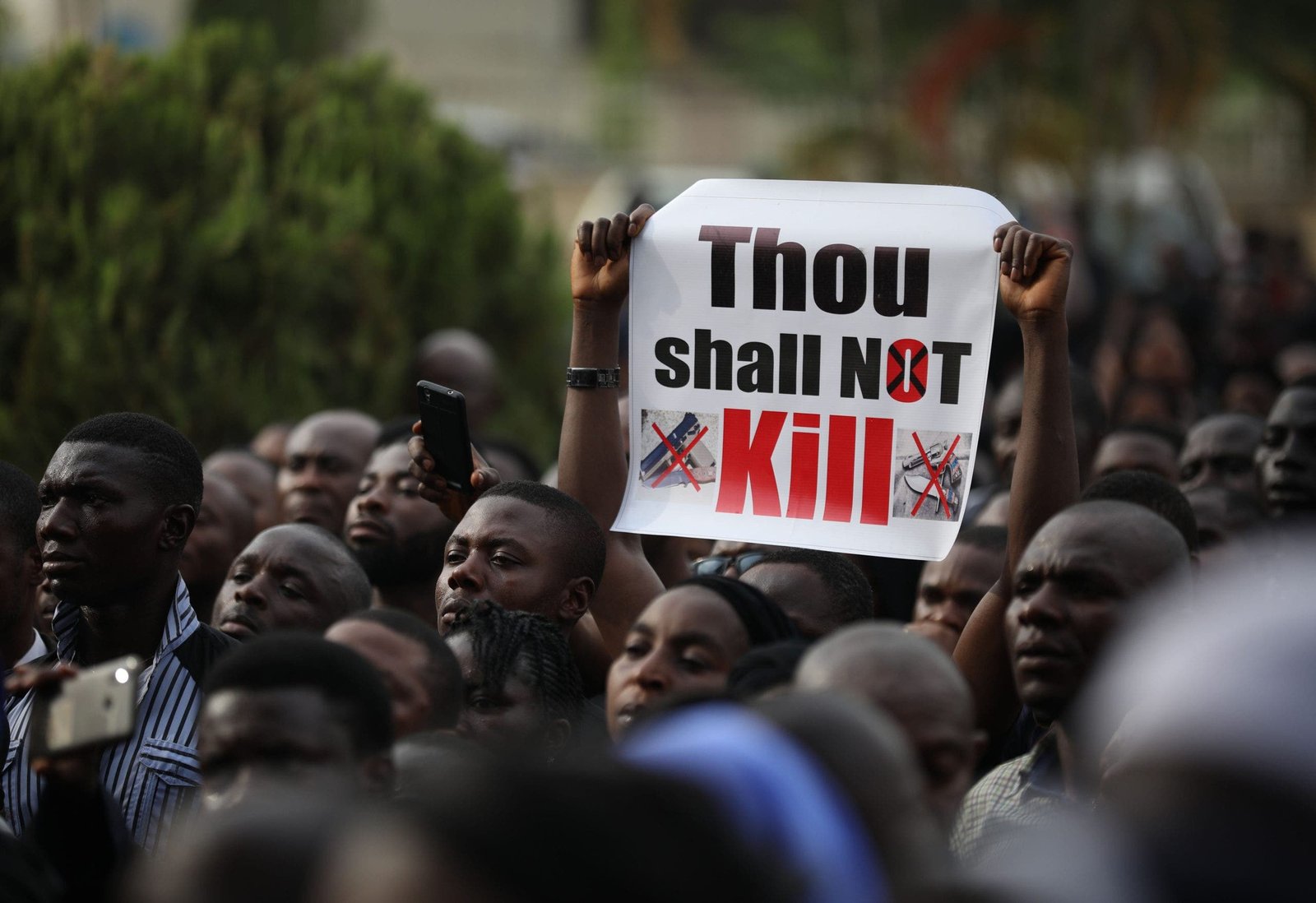
NEWYou can now listen to Fox News articles!
FIRST ON FOX: A Nigerian bishop has been threatened and his home village murderously attacked after he appealed to lawmakers at a March congressional hearing for the killing of Christians to stop.
Bishop Wilfred Anagbe told Fox News Digital in an exclusive interview this week that after he went to Washington to testify, four fatal attacks in 10 days by «terrorist Jihadists» had happened in his diocese, the area he is responsible for.
Nigeria is one of the most dangerous places in the world to be a Christian, according to NGO Open Doors International’s 2025 World Watch List (WWL). Of the 4,476 Christians killed worldwide in WWL’s latest reporting period, 3,100 of those who died – 69% – were in Nigeria.
FEARS REMAIN THIS EASTER THAT CHRISTIANS IN NIGERIA ARE BEING ‘WIPED OUT’ BY MUSLIM EXTREMISTS
Bishop Wilfred Anagbe preaches to his congregation in Nigeria. (Aid to the Church in Need)
Open Doors U.K., added in a statement, «Jihadist violence continues to escalate in Nigeria, and Christians are at particular risk from targeted attacks by Islamic militant groups, including Fulani militants, Boko Haram and ISWAP (Islamic State West Africa Province).»
One leader of one of the biggest churches in Africa’s most populous nation, using the pseudonym «Pastor Winyadebi» because he’s worried about his safety, told Fox News Digital. «It has been attacks upon attacks, religious violence. And we say this because the communities that are attacked are Christian communities.»
«What they (Islamist militants) want is to be sure that Islam [takes] over every part of these places. … And so they’re doing everything to make sure that Christianity is brought down and Islam is [the] established No. 1. They want to make sure that Sharia law (strict Islamic law) has taken over Nigeria,» he said.
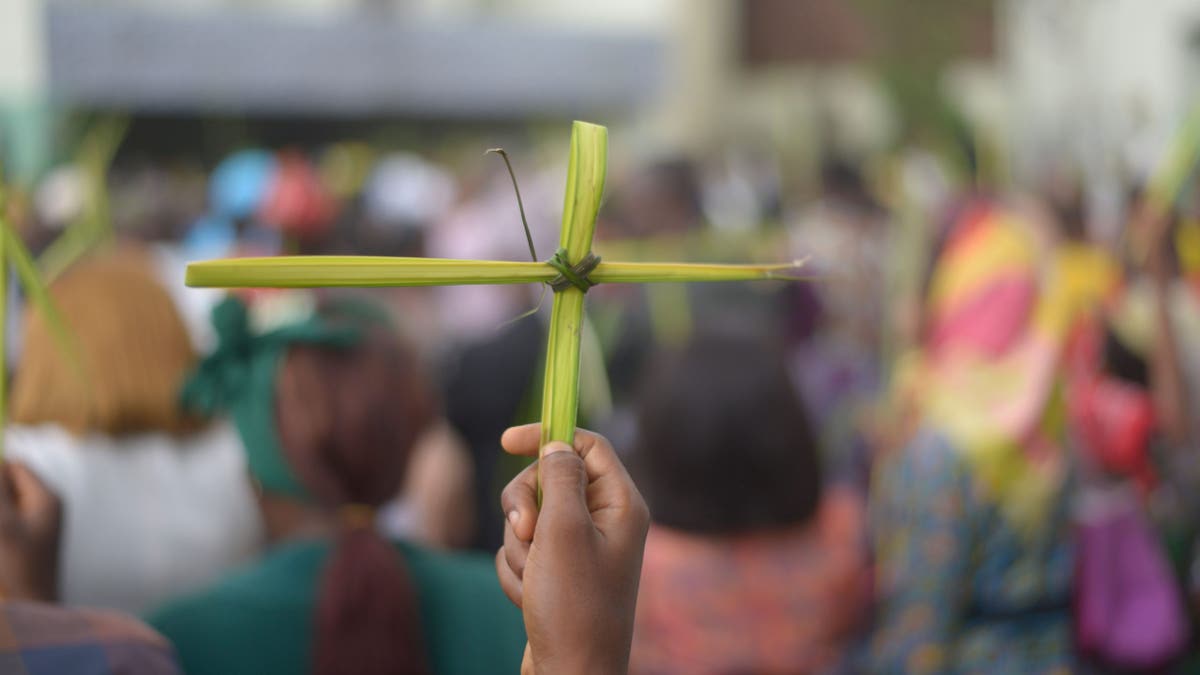
Members of St. Leo’s Catholic Church mark Palm Sunday in Ikeja, Nigeria, on April 13, 2025. (Adekunle Ajayi/Getty Images)
Anagbe’s Makurdi Diocese in north-central Nigeria is almost exclusively Christian. But the constant and escalating attacks by Islamist Fulani militants led him to testify at a congressional hearing in March.
In April, several foreign embassies in Abuja, Nigeria, warned the bishop of credible high-level official threats: that he would be detained upon arrival in Nigeria from the U.S. and that «something might happen to him.»
This led to Rep. Chris Smith, R-N.J., Anagbe’s congressional host and chair of the House Africa Subcommittee, to write in a statement: «I am appalled by reports that Bishop Wilfred Anagbe and Father Remigius Ihyula (who testified alongside Bishop Anagbe) are facing threats—allegedly from Nigerian government sources and affiliated organizations—because of the Bishop’s testimony before Congress detailing violence in Nigeria’s Benue State. They reflect a troubling pattern of retaliation linked to testimony before Congress on religious freedom abuses in Nigeria.»
CHRISTIANS INCREASINGLY PERSECUTED WORLDWIDE AS ‘MODERN AND HISTORICAL FACTORS CONVERGE’
The U.S. Mission in Nigeria on April 10 posted on X calling for the bishop’s «right to speak freely without fear of retribution or retaliation,» declaring that intimidation and threats had been made «because of their March 12 testimony.»
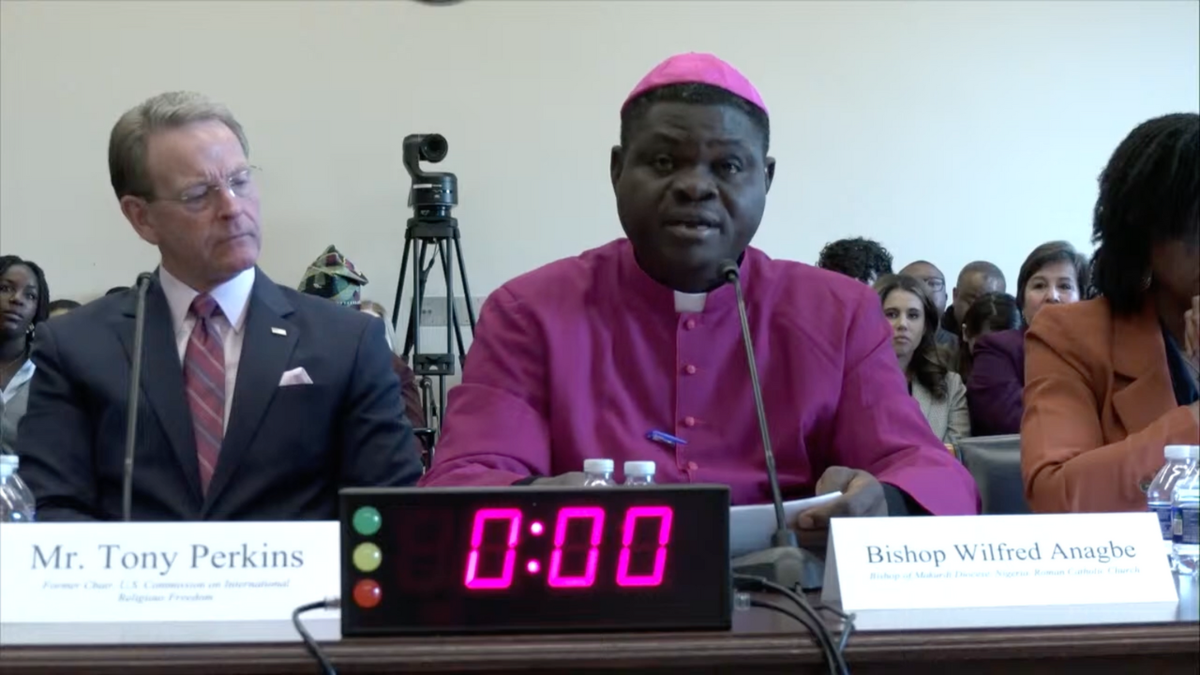
Bishop Wilfred Anagbe testifies at a House Africa Subcommittee hearing in March. (Africa Subcommittee)
Then the attacks, larger and more frequent than before, started, with four attacks between May 23 and June 1.
Anagbe told Fox News Digital that «what has been happening in my village and diocese is nothing short of terror attacks on innocent villagers in order to seize their lands and occupy.»
«On the 23rd [of] May, one of my priests, Father Solomon Atongo, was shot in the leg by these terrorists and almost lost his life. On the 25th of May, my village, Aondona, was attacked for hours, leaving over 20 people dead, scores injured and thousands now displaced and living in makeshift camps,» he said.
«On the 1st of June, terror was unleashed on Naka town, with many killed and displaced,» Anagbe continued. «This attack was so intense that even those earlier displaced and taking refuge in a nearby school were not spared. All over Nigeria, these terrorists are going about on a jihad and conquering territories and renaming them accordingly.»
«I have been speaking about this genocide for some years now, but whereas in the past some others saw my advocacy with the political lens, today almost everyone in Nigeria has seen the truth for what it is, especially after my testimony in the U.S. Congress.»
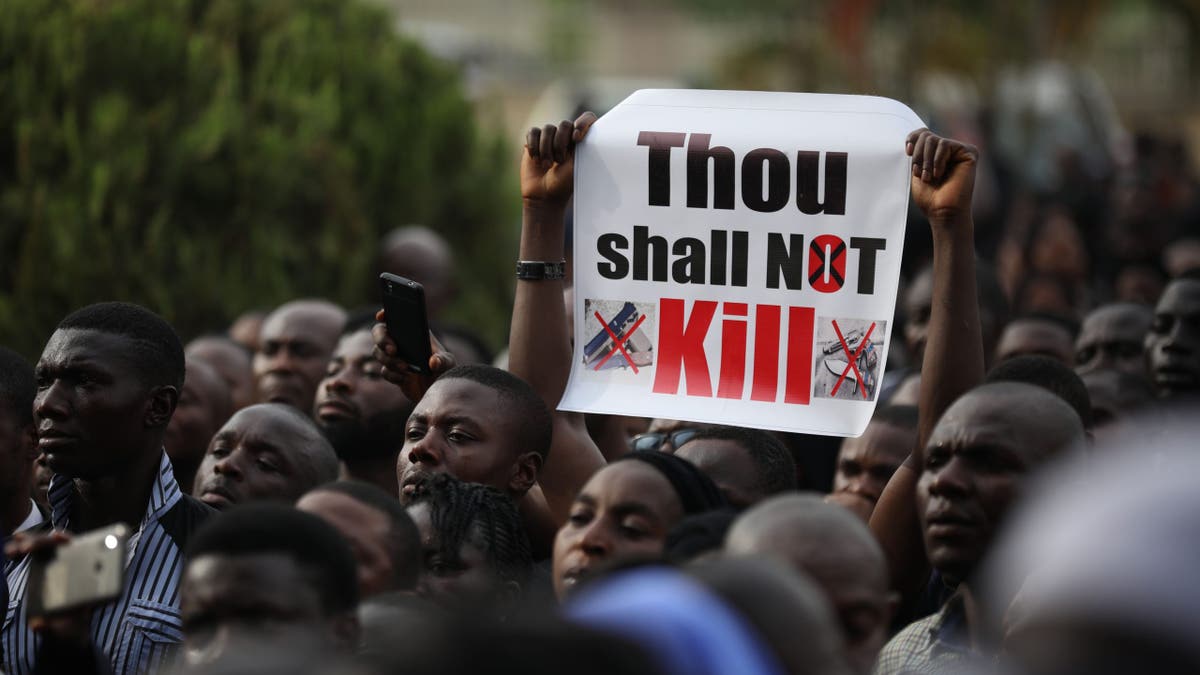
Christian faithful hold signs as they march on the streets of Abuja during a prayer and penance for peace and security in Nigeria on March 1, 2020. (KOLA SULAIMON/AFP via Getty Images)
CLICK HERE TO GET THE FOX NEWS APP
The bishop ended the interview with a plea: «The world has a lot to do. First of all, the world must learn from past mistakes, the Holocaust and most recently the Rwandan genocide. In both cases, the world hid its face in the sand like an ostrich. If the world does not rise up now to put a stop to the atrocities orchestrated in the name of being politically correct, it may wake up one day to casualties that make the Rwandan genocide a child’s play. Keeping quiet would be to promote the genocide or ethnic cleansing in Nigeria.»
While the Nigerian government did not respond to a Fox News Digital request for comment, the Catholic Herald reported that the Nigerian Foreign Ministry had contacted the U.S. regarding the bishop’s testimony, noting that «any reports of threats or intimidation against religious leaders would be investigated and appropriate actions would be taken.»
INTERNACIONAL
Corte Constitucional admitió demandas contra dos leyes económicas urgentes de Daniel Noboa
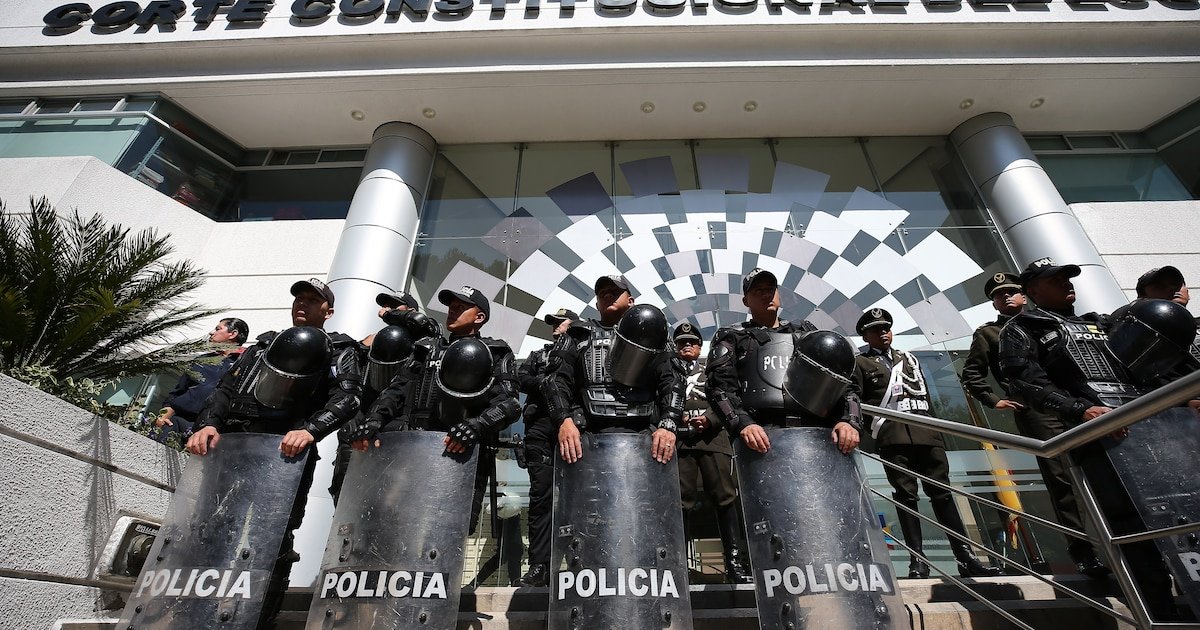
La Corte Constitucional de Ecuador admitió a trámite dos demandas de inconstitucionalidad presentadas contra leyes aprobadas por la Asamblea Nacional a partir de proyectos calificados como urgentes en materia económica por el presidente Daniel Noboa. Se trata de las causas 118-25-IN, relacionada con la Ley Orgánica de Transparencia Social, y 160-25-IN, respecto de la Ley de Fortalecimiento y Sostenibilidad Crediticia, ambas publicadas en 2025 y remitidas por el Ejecutivo bajo el procedimiento abreviado previsto en la Constitución.
En el caso 118-25-IN, la Sala de Admisión avocó conocimiento el 4 de febrero de 2026 y resolvió admitir la acción pública de inconstitucionalidad por la forma contra la Ley Orgánica de Transparencia Social. El accionante sostiene que la norma vulnera el principio de unidad de materia al incluir disposiciones reformatorias en ámbitos tributarios y mineros que, a su criterio, no guardan conexidad con el objeto principal de la ley. En su demanda, argumenta que la incorporación de reformas sobre dividendos, utilidades no distribuidas y fases de exploración minera habría desbordado el eje temático del proyecto original, afectando los artículos 82, 136, 137 y 424 de la Constitución.
El tribunal de admisión consideró que los cargos expuestos cumplen con los requisitos formales y argumentativos previstos en la Ley Orgánica de Garantías Jurisdiccionales y Control Constitucional (LOGJCC), en particular en cuanto a la claridad y pertinencia de los argumentos sobre la supuesta infracción constitucional. En consecuencia, dispuso correr traslado a la Presidencia de la República, a la Asamblea Nacional y a la Procuraduría General del Estado para que, en el término de quince días, intervengan defendiendo o impugnando la constitucionalidad de la norma.
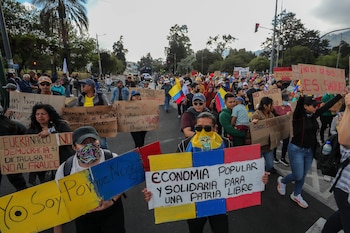
Por su parte, en la causa 160-25-IN, la Corte admitió a trámite la acción pública de inconstitucionalidad presentada por la Fundación Regional de Asesoría en Derechos Humanos (INREDH) contra disposiciones específicas de la Ley de Fortalecimiento y Sostenibilidad Crediticia. La demanda se dirige, por el fondo, contra reformas introducidas a la Ley del Banco del Instituto Ecuatoriano de Seguridad Social (BIESS) y a la Ley de Seguridad Social.
Entre los puntos cuestionados se encuentran las disposiciones que permiten al BIESS realizar operaciones de reporto, gestionar créditos con entidades financieras nacionales o extranjeras y pignorar parte de su portafolio de inversiones, así como la posibilidad de vender cartera vencida. La accionante sostiene que estas medidas podrían afectar la intangibilidad de los fondos y reservas de la seguridad social, protegidos por el artículo 372 de la Constitución, y comprometer el derecho a la seguridad social reconocido en el artículo 34. Asimismo, impugna la reforma que modifica el mecanismo de designación del vocal representante de la Función Ejecutiva en el Consejo Directivo del IESS y la norma que atribuye al propio IESS la determinación del presupuesto para el proceso electoral de sus representantes.
La Sala de Admisión verificó que la demanda cumple con los requisitos del artículo 79 de la LOGJCC y que los cargos formulados permiten, en la fase de sustanciación, plantear problemas jurídicos sobre la compatibilidad de las normas impugnadas con la Constitución. Por ello, resolvió admitir la causa sin que ello implique un pronunciamiento sobre el fondo. En ambos casos, la Corte enfatizó que la admisión a trámite no constituye prejuzgamiento.
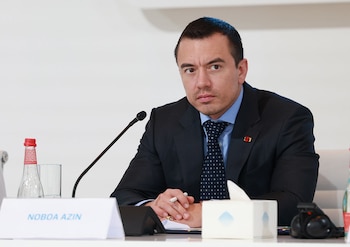
En la causa 160-25-IN, el tribunal negó además la solicitud de medidas cautelares que buscaba suspender provisionalmente las disposiciones impugnadas, al considerar que la argumentación presentada no acreditaba de manera suficiente los requisitos de verosimilitud, inminencia y gravedad exigidos por la LOGJCC.
Con estas decisiones, la Corte Constitucional abre la fase de sustanciación de dos procesos que cuestionan la validez formal y material de leyes tramitadas bajo el mecanismo de urgencia económica, lo que reabre el debate sobre los límites del procedimiento legislativo abreviado y el alcance de las reformas en materia financiera y de seguridad social impulsadas por el Ejecutivo.
edificio,exterior,gente,gesto,grupo,policías,protesta,trabajando
INTERNACIONAL
Biden admin skirted rules to deliver massive contract to nonprofit run by ex-official, IG report reveals
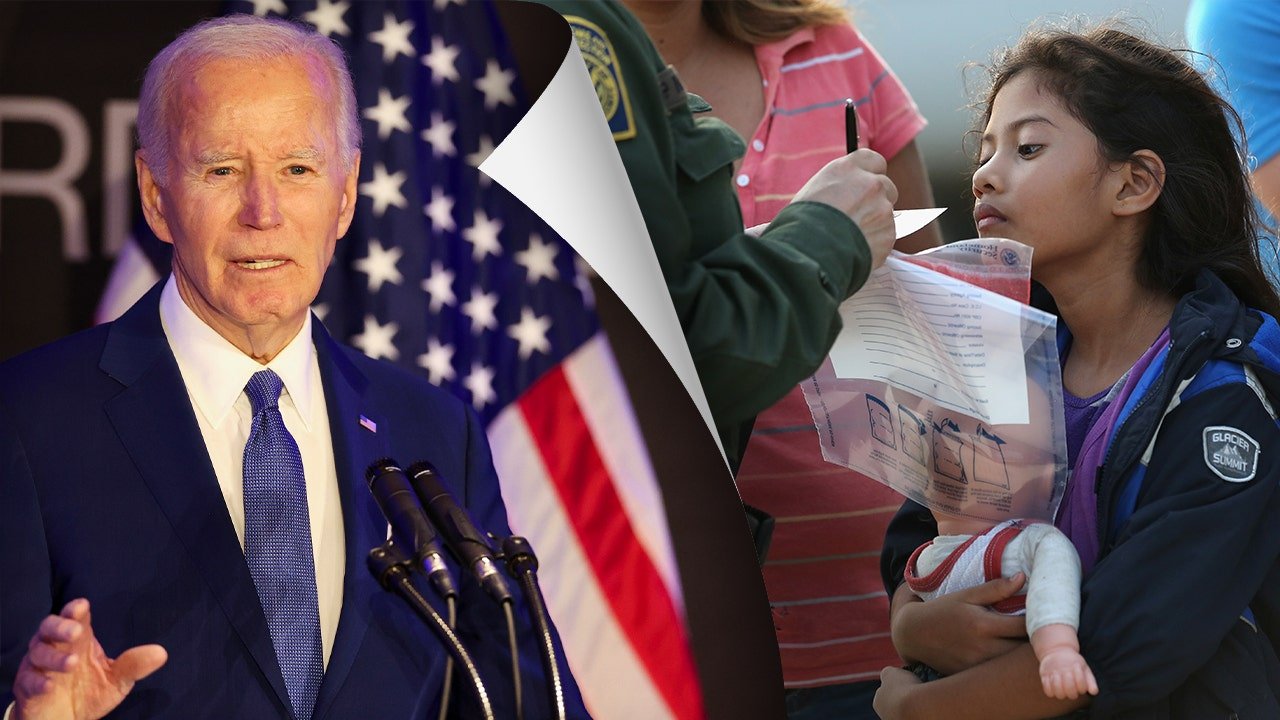
NEWYou can now listen to Fox News articles!
EXCLUSIVE: A new Inspector General’s report released Thursday morning accuses the former Biden administration of bypassing federal rules when issuing a more than half-a-billion dollar «sole source contract» to a nonprofit led by a former Biden official to deal with the unaccompanied minor crisis in 2021.
The Administration of Children and Families (ACF), which is under HHS and manages unaccompanied minors, awarded $529 million for a 1-year contract in March 2021 to a nonprofit called Family Endeavors, Inc. to help establish and manage a new emergency intake site in Texas (EIS) with 2,000 extra beds. However, according to the OIG’s new report, Biden’s ACF failed to follow federal procurement requirements that require full and open competition due to their own «insufficient planning,» rather than the COVID induced emergency the Biden administration cited.
Furthermore, the inspector general’s report found that the contract price was more than double the agency’s own cost estimate of $244 million, and indicated that the agency «subsequently modified» the award 15 times, extending the period until May 2022 and increasing the value to more than three times the original estimate from ACF.
DOGE SAYS TEXAS NONPROFIT WITH FORMER BIDEN TRANSITION MEMBER REAPED MILLIONS OPERATING EMPTY FACILITY
A family seen walking towards a barrier blocking passage across the U.S. border. (Department of Health and Human Services)
«ACF knew well in advance of March 2021 that it was projected to need more shelter beds than existing sites could provide and should have begun contract planning at that time,» the report states. «ACF failed to reasonably conduct the necessary advanced planning to execute a contract for procurement of those beds and related services using full and open competition.»
The report says ACF made only a limited attempt to do the necessary research for the contract, and did not even follow the findings it came up with.
«On March 5, 2021, Endeavors emailed ORR offering emergency assistance for the care of unaccompanied alien children. On March 13, 2021, Endeavors emailed ORR again with an unsolicited proposal, which included a statement of capabilities and concept of operations for an emergency shelter to serve unaccompanied alien children. Three days later, on March 16, 2021, ACF awarded a firm-fixed-price sole source contract to Endeavors to provide and operate an EIS facility in Pecos, Texas,» the report states.

Images of the emergency intake site in Pecos, Texas operated by Family Endeavors, Inc. The nonprofit received $529 million to build out 2,000 beds. (Department of Health and Human Services)
The contract beginning March 2021 was «by far the largest ever» for Endeavors Family, Inc., and came months after the company hired Andrew Lorenzen-Strait, who served as an adviser to the Biden-Harris transition team. The contract was also the second largest ever awarded by the agency, according to Axios.
«Despite multiple requests, ACF could not provide support for its review of the Endeavors quote, the price analysis techniques used to analyze the quote, or an [independent Government cost estimate] for an EIS dated before the contract was awarded,» the new inspector general’s report states. «When we asked for documentation, ACF told us that it was under significant time constraints to award contracts.»
WHITE HOUSE, DHS PUSH BACK ON CLAIMS ICE TARGETED 5-YEAR-OLD IN MINNESOTA, SAY CHILD WAS ‘ABANDONED’
Family Endeavors Inc. told Axios that its work on the border was a «continuation of services» that it has conducted for the migrant population since 2012. By April 2021, a month after the contract began, federal procurement records showed ACF had already paid $255 million of the no-bid contract to the nonprofit, which had already dwarfed the nonprofit’s total $43 million budget in 2018.
Family Endeavors, Inc. did not immediately respond to an after-hours email from Fox News seeking comment.
In September 2023, then-Chairman of the House Homeland Security Committee, former Rep. Mark Green, R-Tenn., and then-Chairman of the House Subcommittee On Oversight, Investigations and Accountability, former-Rep. Dan Bishop, R-N.C., sent a letter to Lorenzen-Strait about his ties to both the Biden administration and Endeavors. The letter requested him to both reach out to the committee for an interview and mandated he preserve records on his communications with leaders involved in granting other «sole source» contracts.
«On January 20, 2021, Family Endeavors, Inc. (Endeavors) named you the Senior Director for Migrant Services and Federal Affairs. Immediately preceding your position with Endeavors, you served on the Biden-Harris transition team, and previously was an Immigration and Customs Enforcement (ICE) official,» the letter said. «In March 2021, just two months after you joined Endeavors, ICE awarded an $86.9 million sole source contract to Endeavors to provide beds and services in hotels for migrants who illegally crossed the Southwest border.»
The letter cites an undercover video recording from Project Veritas of Lorenzen-Strait «boasting» about his participation in government contracts related to migrant services.
CLICK HERE TO DOWNLOAD THE FOX NEWS APP
«Specifically, you refer to the Endeavors contract as a ‘corrupt bargain.’ You further discuss ‘brokering’ a deal that won Cherokee Federal, a team of tribally owned federal contracting companies, a nearly $2 billion contract with the Department of Health and Human Services (HHS) to provide services to unaccompanied alien children,» the letter continues with its claims. «In the video, you admit that Cherokee Federal is not equipped to handle the contract. You also admit that while you are publicly involved with the company Deep Water Point & Associates, you hid participation in government contracts through the entities, VerdinPoint and The Tanager Group.»
A HHS spokesperson said that under President Donald Trump the ACF is implementing stricter accountability measures and strengthening oversight.
«The previous administration wasted more than $1.8 billion dollars on a facility intended to house illegal aliens that was not even used in the last year of the previous administration, and that kind of fiscal mismanagement is exactly what Secretary Kennedy is working to correct,» the spokesperson said. «In fact, this contract was cancelled in the early months of the Trump administration as soon as this mismanagement was discovered. HHS and ORR remain fully committed to protecting children, restoring accountability at every level of the system, and putting Americans first.»
Edmund DeMarche contributed to this report.
immigration,joe biden,homeland security,deportation,politics,banking finance
INTERNACIONAL
EE.UU. presiona a Venezuela para que haga más para estimular la inversión

Postura

 POLITICA2 días ago
POLITICA2 días agoAcuartelamiento policial en Santa Fe: reclamo salarial y temor a un conflicto nacional de seguridad

 POLITICA2 días ago
POLITICA2 días agoLa advertencia de ATE a los gobernadores que apoyan la reforma laboral: “Firmarán su sentencia de muerte”

 ECONOMIA2 días ago
ECONOMIA2 días agoCuánto le cuesta a la clase media llenar el changuito y cómo varían los precios de los alimentos entre provincias














